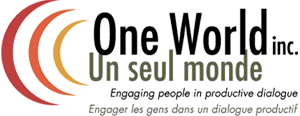The ‘Big 3’ Types of Evaluation
 Evaluations are not one-size-fits-all. The appropriate type of evaluation depends largely on the purpose of the evaluation.
Evaluations are not one-size-fits-all. The appropriate type of evaluation depends largely on the purpose of the evaluation.
A formative evaluation focuses on ways of improving and enhancing programs. They are often done through a quality-improvement lens, and may be process-oriented or impact/outcome-oriented.
Formative evaluation can be done at any stage of a program. It can take place as the activity unfolds and provide an opportunity to take corrective action in real time to improve outcomes. It can also include a phase completed at the end of the project to help assess and document lessons learned for next time.
A summative evaluation occurs at the end of a process and focuses on outcomes – e.g., did we achieve what we had intended? Such an evaluation judges the overall effectiveness of a program. It often used to make decisions about continuing or terminating a program or project.
More recently, a third type of evaluation has emerged. This form, called developmental evaluation, has emerged in response to the demands of social innovation in which both the path and the destination are evolving. The focus here is examining what we are learning in order to discover new ways of accomplishing the work or new solutions. As with formative evaluations, developmental evaluations can be used throughout a program’s life.
There are also other evaluation labels you may encounter depending on the focus of the evaluation (e.g., process or outcome), the approach being used (e.g., participatory, utilization-focused) and the tools (e.g. outcome mapping).
Summative evaluations are often what people think of when they think about evaluation. They are usually judgmental – often a third party comes in and judges if you have done well, whether the program was worthwhile, whether it was worth the money.
Formative and developmental evaluations are better characterized as learning-focused. They are meant to be used to improve processes as they go along, to support innovation and encourage reflection on how things might need to be adjusted as a process rolls out . They can be done by a third party, internally or by a party that is also involved in rolling out the process, but are usually collaborative in nature. So they have quite a different feel than summative evaluations.
All types of evaluation are most useful and effective when they are planned up front. Considering evaluation at the earliest stage as part of the planning process helps to identify the appropriate type of evaluation, to clearly define the objectives of an initiative and to develop a shared understanding of what success means and how it will be assessed. It also ensures that the data required to evaluate is being collected through-out the process.
